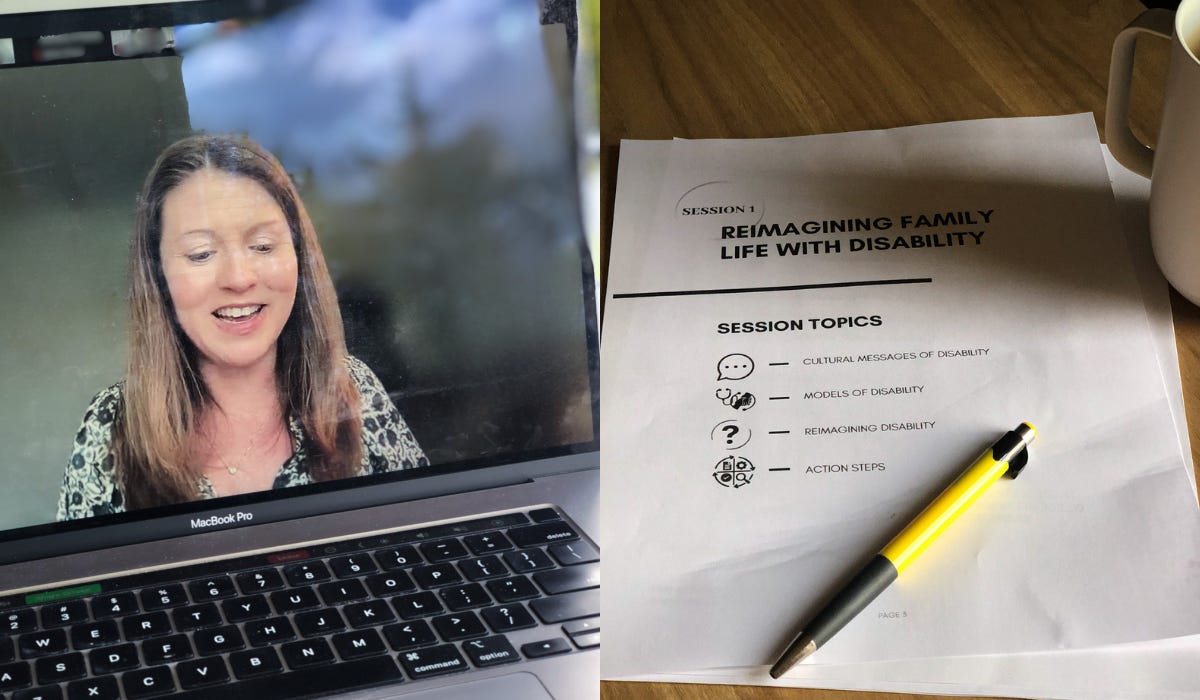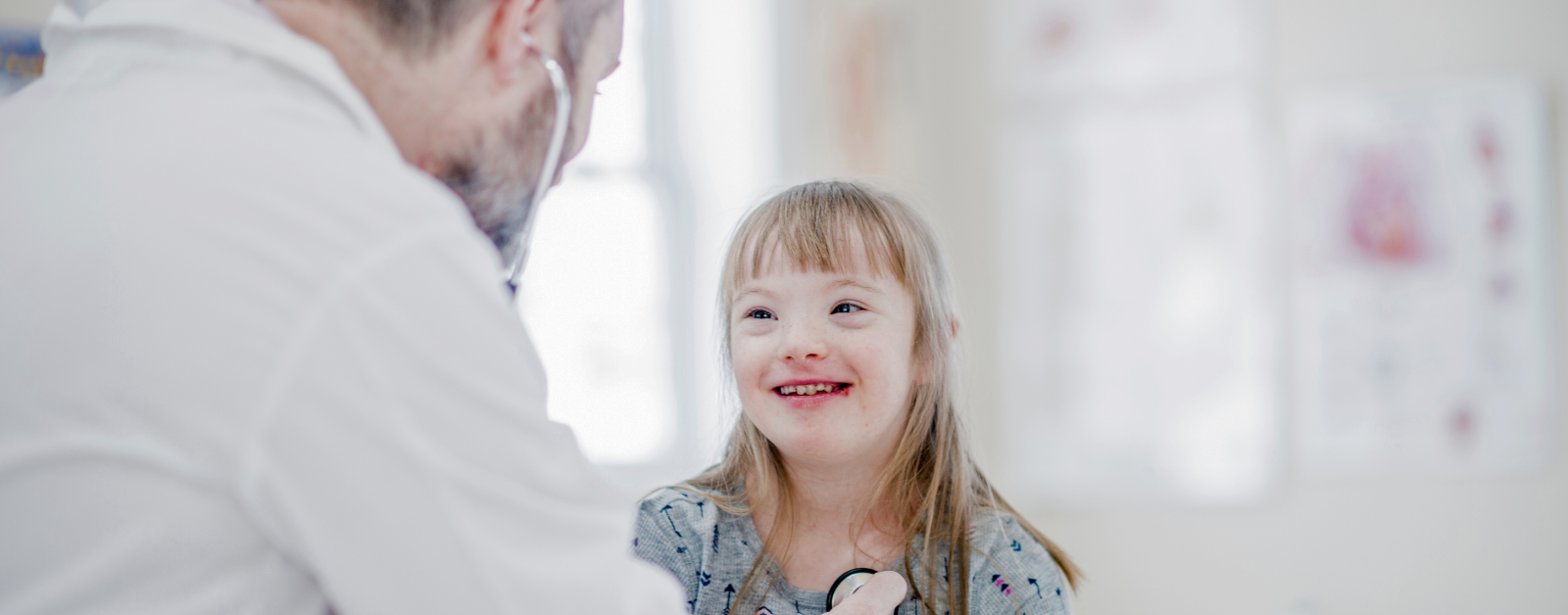I’m two weeks into my new workshop, Reimagining Family Life with Disability. We have nearly 40 parents of children with disabilities who are Zooming in from across the United States—Vermont, Georgia, California, Minnesota, Texas, New York, and many more—and from around the globe—Canada, Germany, Australia.
So far, we’ve talked about the messages our culture tells us about disability. We’ve explored two models that can both help and impede our understanding of disability. And we’ve talked about shifting our identity, our mindset, and our behavior as we seek to reimagine our family life.

The Tale of Two Doctors
In one session, a few participants shared stories about the ways their doctors talked about their babies, who each had Down syndrome. One mother described the aftermath of an emergency C-section, with her baby in the NICU. Her doctor came in and said, “I want you to know your son is fine. I believe he is fearfully and wonderfully made. He does have some medical issues. We do believe he was born with trisomy 21, which is known as Down syndrome. We are doing everything your son needs right now.”
Then another couple described their own experience with a medical team after giving birth to their son with Down syndrome. The doctor asked them, “Did you know this was a possibility?” They told him yes, they had known they might have a child with Down syndrome. The doctor said, “And you didn’t do anything about it?”
You can imagine the difference those doctors’ words made to the parents involved. One shaped the imagination with honesty and hope. The other shaped the imagination with accusation and fear.
A World Where Everyone Belongs
We can all be people who participate in creating a world where people with disabilities and other vulnerabilities belong. We can all imagine spaces (I visited one last week!)—whether that is a hospital delivery room or a classroom or workplace—where vulnerable people receive the welcome they deserve. We can all be people who live with honesty and hope instead of accusation and fear.
I know that it is naive and idealistic to envision a world of belonging. But conversations like this make me insist that living in a place of imagining goodness and beauty and truth is where I always want to be.
I’d love to hear from you. Where have you experienced a place where vulnerable people received the welcome they deserve?
MORE WITH AMY JULIA:
- FREE RESOURCE: 10 Way to Move Toward a Good Future (especially for families affected by disability)



